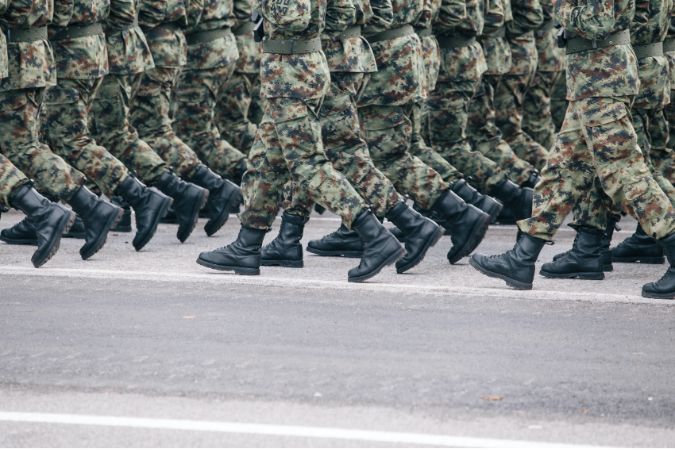The proposal of the European Commission to restrict the use of lead in ammunition for civilian outdoor activities, such as hunting and sport shooting, and in fishing tackles, is in the pipeline.
The proposal includes, among other things, a near total ban on the placing on the market and use of lead shots and bullets for hunting and sport shooting, with some derogations for the latter. The decision-making process is in its final stages, with the European Chemicals Agency (ECHA) committees’ final opinions expected in December, and the final draft proposal anticipated to be put forward by the European Commission at the beginning of 2023.

The current conflict situation in Ukraine is forcing EU countries to exhaust their own stockpiles of ammunition without, however, being able to replenish them because of production delays and logistic barriers
Although the current text excludes military production of ammunition from its scope, the proposed measures, if adopted, will still impact the defence industry, given that most manufacturers supply small arms ammunition to both civilian and government customers. Member States’ defence forces are in fact dependent on one and the same manufacturer for their standard and exceptional small arms’ ammunition supplies. The ability of EU manufacturers to produce more ammunition when there is a demand surge hinges on the possibility of converting civilian production lines. If that is not possible, Member States defence forces will be reliant on companies based in non-NATO countries for their ammunition needs.
As it is, the proposed restriction will oblige ammunition manufacturers to re-design their production lines for civilian customers in order to produce lead-free ammunition. That forced change will cause enormous supply problems for the military and defence sectors, undermine the security of the European Union, especially in case of conflicts, as these companies would find themselves in the position of not being able to fulfil orders adequately and in a timely manner. The current conflict situation in Ukraine is forcing EU countries to exhaust their own stockpiles of ammunition without, however, being able to replenish them because of production delays and logistic barriers, and this even before the proposed restriction has come into effect.
Apparently, this issue has not been fully recognised, and therefore not addressed, by ECHA which, in its response to the comments on the Annex XV dossier, affirmed only that it “had already considered the possible spill-over impact of the proposed restriction on ammunition produced for civilian purposes on the production of military ammunition” and concluded that “this spill-over impact will be negligible”.
For all the above reasons, the Association of European Manufacturers of Sporting Ammunition (AFEMS) believes that a moratorium of at least 10 years on the Restriction proposal on lead ammunition is necessary to find an alternative to lead which is acceptable from an EU defence procurement and NATO standards perspective. Once that alternative is found, the switch in civilian production can be made and the effet utile can truly be given to the defence exemption.
The request is not aimed at withdrawing the proposal – which should be rethought as to be more sustainable and effective - but rather to limiting the unintended negative effects it would have on the EU’s security and defence.